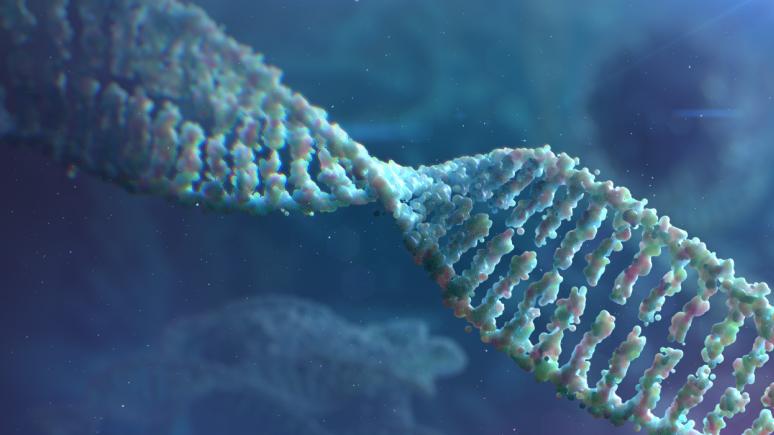What are short-chain Khavinson peptides?
Vladimir Khavinson developed a method of invention short-chain peptides based on the analysis of the amino acid composition of animal tissue peptide extract. These short-chain peptides have the main in vivo and in vitro activities of the preparations described above.
The principles of designing biologically active short-chain Khavinson peptides include:
- the quantitative analysis of biologically active peptide amino acid composition of peptides preparations received from body tissues are used to choose the two amino acids with the highest contents;
- these two amino acids are connected together by a peptide bond to create the core of the future peptide;
- the core of the prospective peptide is expended by adding amino acids that are next high in contents. It is also important to consider that if two amino acids create a complementary effect on tissue (e.g.one amino acid is enhancing proliferation, while another one is enhancing apoptosis), then the respective dipeptide is likely to contribute to the regeneration of the tissue.
The effect of short-chain Khavinson peptides
Lipid peroxidation
Administration of Epitalon causes a reduction in lipid peroxidation levels in Drosophila melanogaster. The effectiveness of the antioxidant action of short-chain Khavinson peptide Epitalon elevates under extreme stresses (for example, hypokinesia is the condition when your movement range is not as normal as it should be or hypoxia – when the oxygen level is insufficient at tissue level). Scientists found that Epitalon may protect neurons of the cerebellum from oxidative stress in the progeny of rats exposed to hypoxia.
Another short-chain Khavinson peptide Cortagen injections to rats were linked with a reduction in the content of lipid peroxidation products and the oxidative modification of proteins. It was accompanied by reducing the antioxidant activities of blood serum and brain cortex.
Tissue proliferation and regeneration
Administration of Epitalon and leucyllysine at broad ranges of their concentrations facilitated cell proliferation in rat skin. The concentration of peptides was higher in old rates. However, the ranges of the peptide concentration were broader in young rats compared to aged rats. The stimulatory effect of leucyllysine was higher than that of Epitalon.
Leucyllysine and Epitalon stimulate increasing in the functional activity of aging skin fibroblasts.
In a study of accelerated aging caused by fractional irradiation at sublethal doses, short-chain Khavinson peptide Vilon formed the immune homeostasis of rats, facilitated processes of reparation in their thymuses, and reduced phasic alternations caused by gamma-irradiation in the spleen and thymus. Therefore, it accelerated the compensation of microcirculatory impairments in these organs.
Vilon facilitated the post-irradiation restoration of the spleen and thymus, mainly by elevation of the proliferative activity of thymocytes, increasing the differentiation of B- and T-lymphocytes, and stimulating the migratory activity of leukocytes.
Among all short-chain Khavinson peptides, only Prostamax was found to facilitate the growth zones of prostate and bladder explants.
Effects on lifespan
Regulation of homeostasis via peptides occupies an essential place in the complex chain of physiological processes that leads to the aging of cells, tissues, organs, and the whole organism. The functional and morphological indications of aging involve the involution of tissues and organs, especially those referred to as the primary regulatory systems: endocrine, nervous, and immune systems.
Evidence suggests the existence of age-related hypoplasia and sometimes even the atrophy of the pineal gland, brain cortex, subcortical structures, thymus, retina, vascular wall, and reproductive organs.
In numerous studies, Khavinson peptide supplements described above contributed to the significant increase in the mean animals’ lifespan, up to 25–30% vs. control. The most robust increase in the maximum lifespan was found in CBA mice treated with short-chain peptide Epitalon ( increase by 42.3%).
Antitumor activity
In mice treated with short-chain Khavinson peptide supplement derived from the pineal gland and thymus, the correlation has been shown between cellular immunity indexes (such as such lymphocyte blast transformation generated by phytohaemagglutinin, which reflects functions of T-lymphocyte) and mean life span.
Significant increases in the animals’ mean lifespan were most likely caused by the significant antitumor activity of such short-chain Khavinson peptides as Thymogen and Epitalon. In addition, the mice showed a drastic 1.4 to 0.7 reduction in the total cases of malignant tumors, either spontaneous or induced by carcinogens or irradiation.
In rats administrated with Thymogen for one year, radionuclide-induced carcinogenesis was decreased: the total cases of all spontaneous tumors reduced 3.3 times and six times reduced mammary adenocarcinoma. Thymogen facilitated immunity and suppressed the occurrence of spontaneous tumors in animals.
These results propose that short-chain Khavinson peptides may be used to prevent tumor development in humans.
In rats exposed to constant illumination, spontaneous tumors developed earlier than those exposed to normal illumination. The use of Epitalon reduced the adverse impact of constant illumination, improved homeostasis, and slowed down the process of aging. Epitanlon significantly inhibited the development of spontaneous tumors.
You can learn more about the different types of peptides and their functions by Click Here.
Source KHAVINSON PEPTIDES














Leave a Reply
You must be logged in to post a comment.